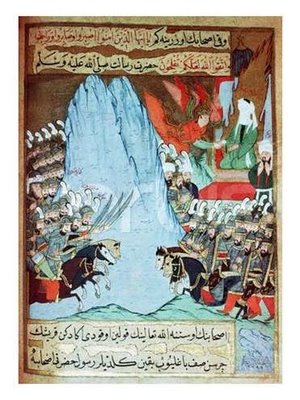With the aim of strengthening business ties, two Riyadh business partners in their 70s have married their teenage daughters (17-19) to each other, reported Sayidaty magazine, a sister publication of Arab News.
“A man has the right to marry. When it comes to marriage, there is no stopping point,” said Al-Dossary, a man in his 70s with silver hair, a gray beard and gray eyebrows. “We have followed Islamic principles in the way we conducted our marriages and we are both happy with our wives,” he added.
Al-Dossary married his teenage daughter to his business partner and in turn married his partner’s teenage daughter. His partner, Saif Al-Qahtani, said: “It is true that our arranged marriages are strange, yet this does not mean that we are the only people to have married in this way, either in the past or the present. Anyhow, the main purpose of marriage is to protect men and women and we have both achieved this through our marriages.”
He added: “It took us only two months to decide and then arrange our marriages. It all began when my friend, Al-Dossary, continuously expressed the desire to marry.”
Al-Dossary added: “It is true that I wanted to marry. I proposed to several girls but all refused. One day I decided to ask Al-Qahtani to give me one of his daughters. He agreed immediately, but in return he asked me for my daughter. I was surprised because he already had three wives; however, I agreed since I had a young daughter who was of marriageable age.”
Al-Qahtani commented: “Yes, I asked him to give me his daughter in return. When he asked for one of my daughters, I thought I couldn’t refuse him because of our friendship. I knew that if I did refuse his request, our business would be affected. I didn’t have any other choice. I agreed to give him my daughter and take his daughter in return. At the time, I remember telling him to give me his daughter and that I would give him mine.”
He added that the two old men then set a date, not more than two months away during which time the marriages would be finalized. “We met our deadline and we have now been married for a year and a half,” he said.
When asked if they had consulted their daughters, Al-Qahtani said: “I did not ask my daughter. I don’t have to. I know what is beneficial for her. When I told her what I had planned, she was happy. If she hadn’t been, she would have told her mother.”
Al-Dossary said: “In bedouin culture, a girl does not have the right to express her opinion about marriage, especially if her father and brothers have decided on a particular man. In both our cases, we have been married for a long time and have had no problems with our wives. Although we are much older than our wives, the fact that we are together proves that we are right for each other.”
He added: “Saudi girls, especially bedouins, prefer to marry old men. This is what my third and fourth wives have both told me. They keep telling me they are glad that they did not marry young men.”
As for the wedding ceremony, Al-Dossary said: “Indeed, we had a wedding ceremony. We were not stealing, so there was no need to hide things. We had a party for women. However, the men’s party was only for me, my brothers, Al-Qahtani, his brothers and the marriage official. We provided our wives with huge dowries and valuable gifts, far more than anything any young men could have given them.”
When asked if they have had children by their young brides, Al-Qahtani said with enthusiasm: “I have already had a daughter and my wife is now pregnant again. Al-Dossary has not had any yet but he has many from previous wives.”
Reacting to allegations of misbehavior, Al-Dossary said: “We do not think of our daughters as entities to profit from. If I were of such a mind, then I would have married my daughter to men who asked for her and offered me lots of money; however, I refused them because of their unacceptable manners and behavior.”
Al-Qahtani agreed: “To tell you the truth, when I asked Al-Dossary to give me his daughter in return for mine, I had a couple of things in mind. I told him that we were not just friends and partners but we would also be relatives. We did not think of our daughters as business entities.”
He added: “Some of my cousins have refused to accept the marriages, not because of the idea but because one of them wanted to marry my daughter. However, he couldn’t provide the dowry I asked for and, therefore, I didn’t give him my daughter. I have forgotten about him.”
When asked if they plan to use this strategy to marry again, Al-Qahtani said: “I cannot marry again as I already have four wives, but no one knows what will happen in the future. However, if I were to remarry, I would marry one of my cousins and would have no problem in offering one of my daughters in return.”
Al-Dossary said: “I am satisfied with my three wives but as Al-Qahtani said, no one knows the future. If I am to marry and the father of the girl or her brother asks me to give him one of my daughters, then I would agree. I would even agree if he asked for one of my granddaughters.”
Commenting on the story, Ali Nasir, a social researcher at the Education Ministry, said: “The problems that are currently present in Saudi and Arab society in general are due to easy-going attitudes toward marriages. Although there are rules and laws in some Arab countries that demand respect between men and women, in Saudi Arabia customs and traditions still remain in control. How could two old men treat their daughters as objects? How can they ignore the basic age differences?”
He added that having read a transcript of the men’s interviews, he could clearly see that they had no respect for women. “They did not even consult their daughters. They also said that they were ready to marry again in a similar fashion.”
Sheikh Muhammad Al-Wahbi, a researcher in Islamic jurisprudence, said that there was no legal problem with such marriages as long as the women involved agreed. He warned that people must, however, be clear about their intentions. “It is abominable to turn a marriage into a business in which a woman is no more than an object or business commodity,” he said.
From
Arab News RIYADH, 7 January 2007


 "Do not believe in anything simply because you have heard it. Do not believe in anything simply because it is spoken and rumored by many. Do not believe in anything simply because it is found written in your religious books. Do not believe in anything merely on the authority of your teachers and elders. Do not believe in traditions because they have been handed down for many generations. But after observation and analysis, when you find that anything agrees with reason and is conducive to the good and benefit of one and all, then accept it and live up to it."- Gautama Buddha
"Do not believe in anything simply because you have heard it. Do not believe in anything simply because it is spoken and rumored by many. Do not believe in anything simply because it is found written in your religious books. Do not believe in anything merely on the authority of your teachers and elders. Do not believe in traditions because they have been handed down for many generations. But after observation and analysis, when you find that anything agrees with reason and is conducive to the good and benefit of one and all, then accept it and live up to it."- Gautama Buddha 


